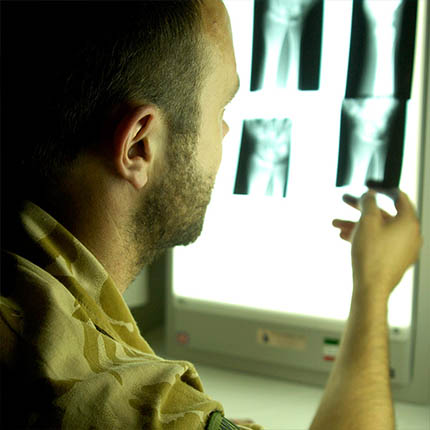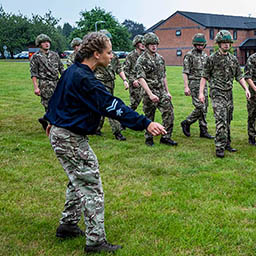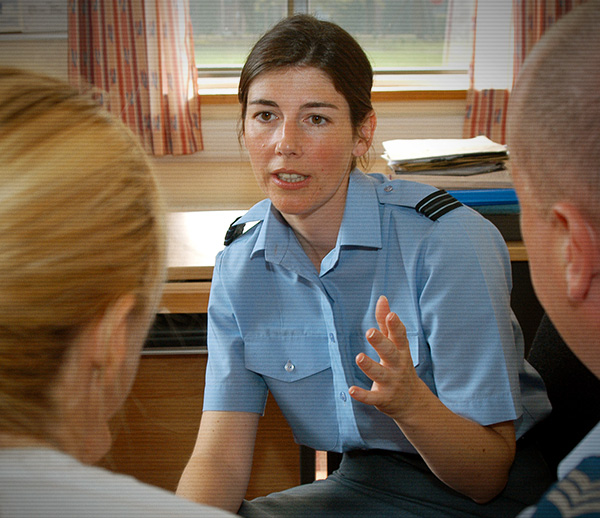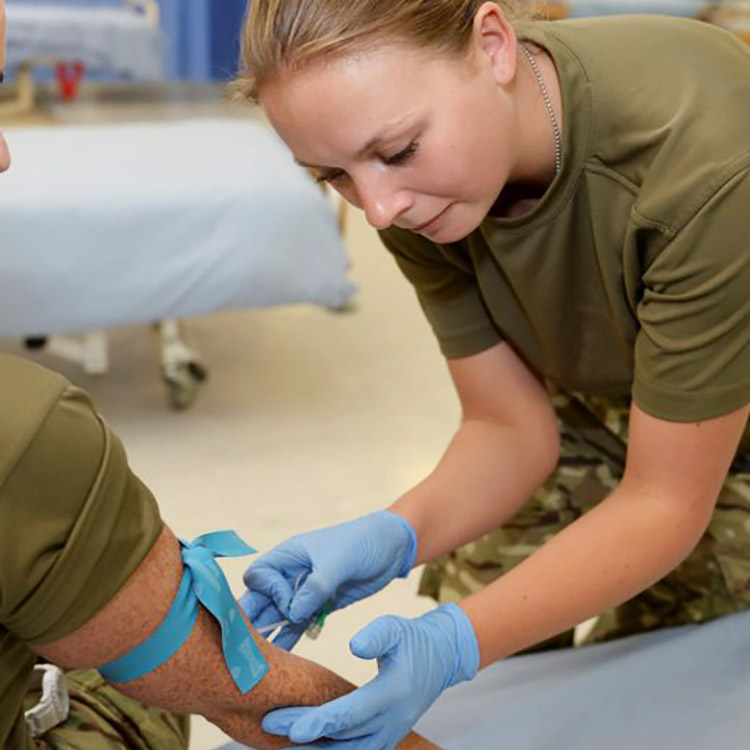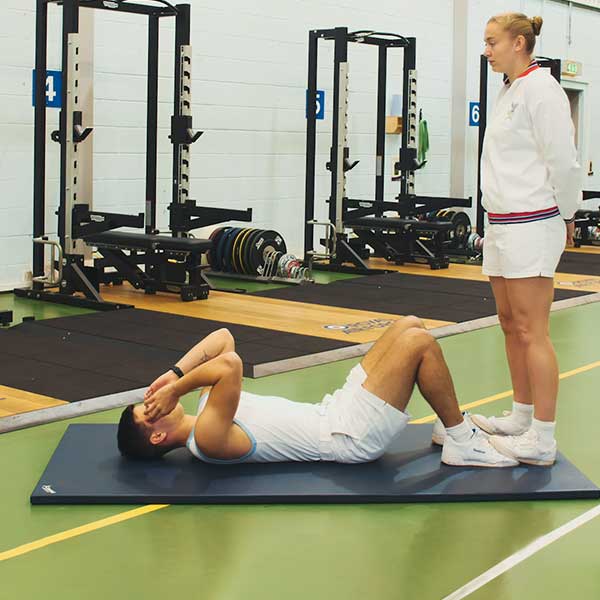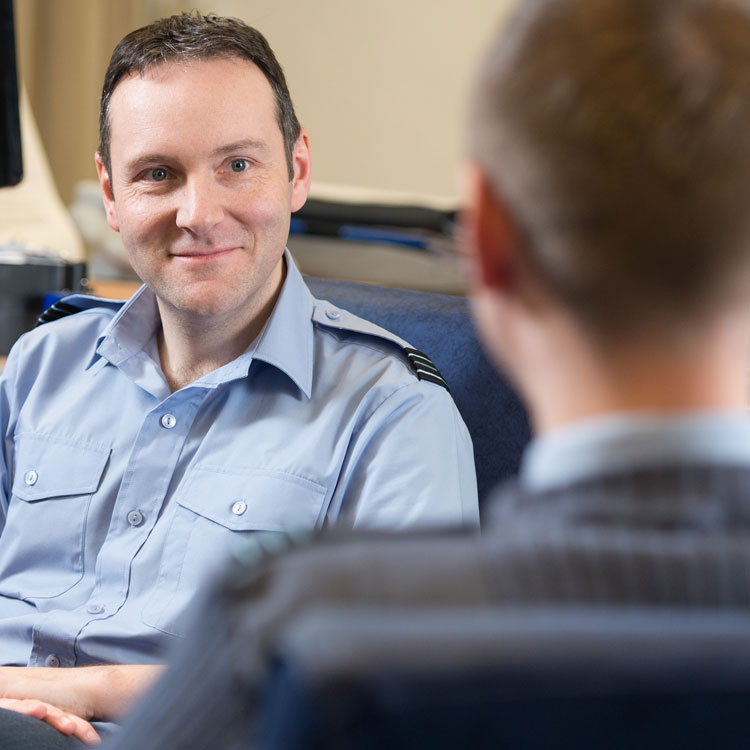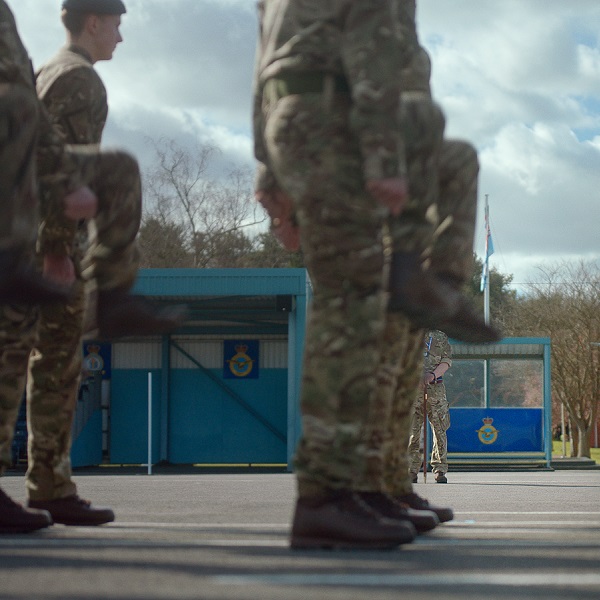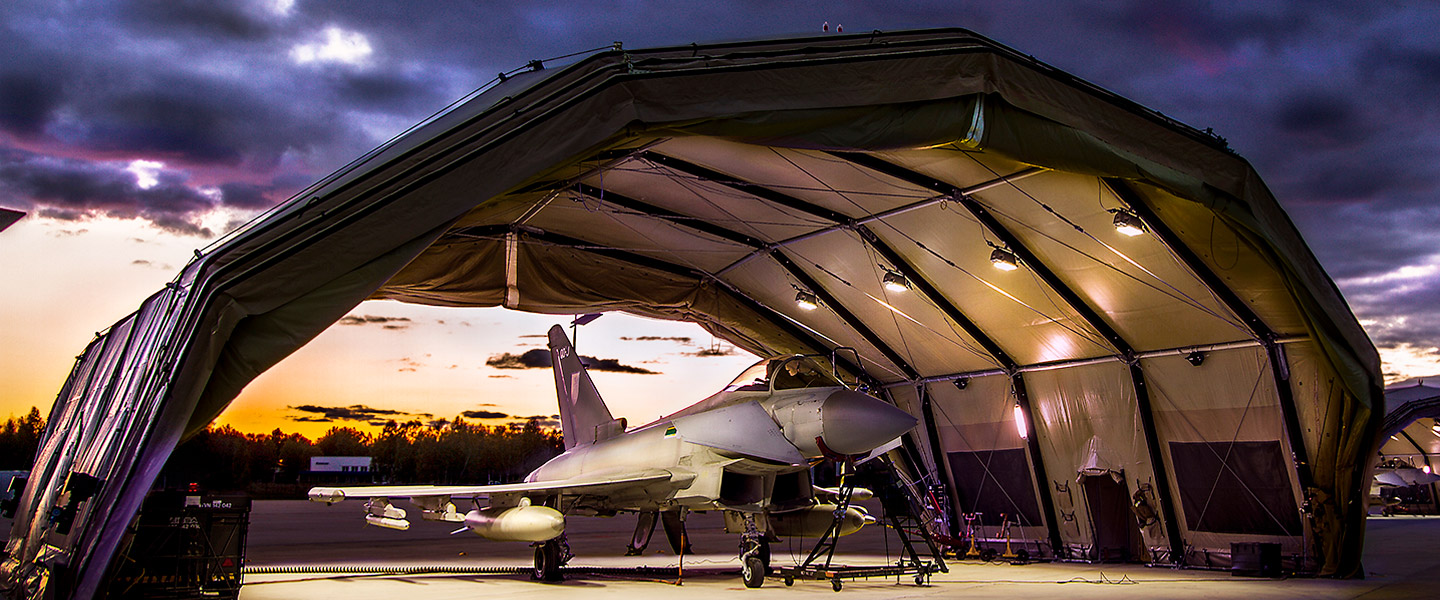
Please Note: This role is recruiting for a potential training year 24/25 intake.
As an RAF Radiographer, you will be an important member of the diagnostic healthcare team. You will provide clinicians with diagnostic images of the body to assist in the treatment of patients.
Already applied? See what the next steps are >
Just like a civilian fulfilling the same role, you will normally work under the clinical direction of a radiologist and produce images. In your role you will:
- Use a range of technical imaging equipment
- Liaise with a wide range of healthcare professionals and Clinicians.
- Function in a variety of departments including the Emergency Department, ITU, Operating Theatres, In Patients, Out Patients and Portable Imaging onwards
- Qualified Applicants: State-registered radiographer with BSc (Hons) in Diagnostic Radiography, registered with the HCPC as a Diagnostic Radiographer.
- Unqualified Applicants: 5 GCSEs at Grade C/4 or five Scottish National 5s at Grade C to include Maths and English Language/ Literature and Science.
Grade BBB in three A-level subjects including Science. A-level General Studies, Critical Thinking and Citizenship Studies are not accepted but other qualifications may be considered.
Birmingham City University is the designated provider for our undergraduate training programme. Visit www.bcu.uk for further information
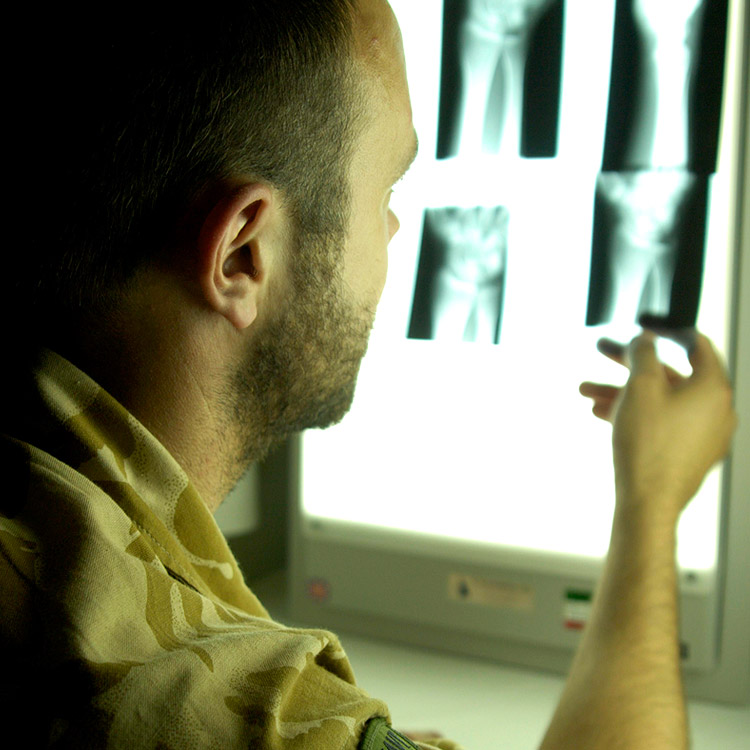
- Be aged 17 – 47 years old (Must attest before 48th birthday)
- Be a citizen of the United Kingdom or the Republic of Ireland, holder of dual UK/other nationality or have been a Commonwealth citizen since birth (with ‘right to work’ immigration status)
- Commit to minimum 12 years service
- Meet the health and fitness criteria
- Pass a Fitness test - Details below
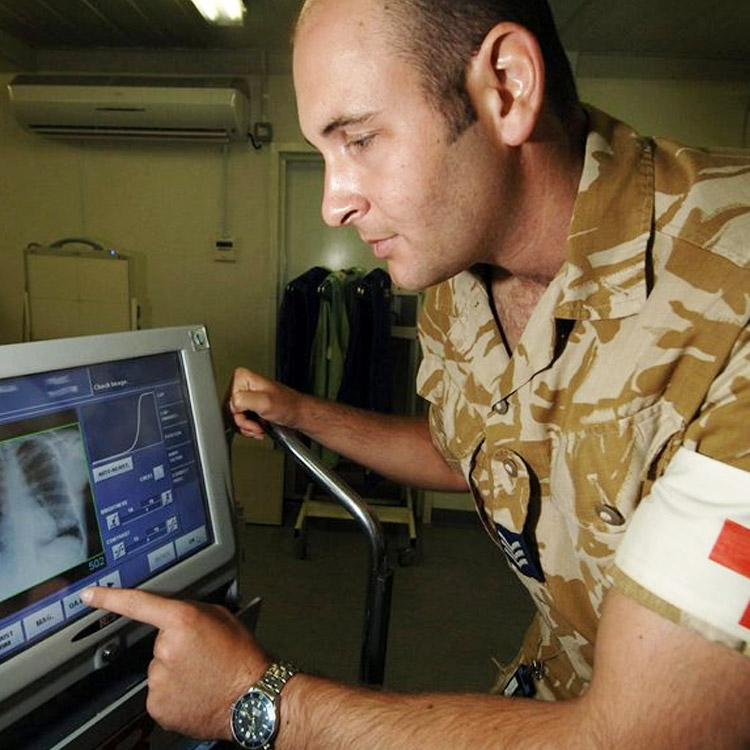
Thanks to subsidised food, travel, accommodation and free gym you get more money in your pocket.

Applicants must be aged between 17 and 47 (Must attest before 48th birthday).
Applicants must also read all of the sections below and make sure they meet all entry requirements before submitting an application.

NATIONALITY
You must be a citizen of the United Kingdom or the Republic of Ireland, holder of dual UK/other nationality or have been a Commonwealth citizen since birth (with ‘right to work’ immigration status).
RESIDENCY
Whether or not you were born in the United Kingdom, you should have resided there for the 5 years immediately preceding your application, but candidates with a minimum of 3 years may be considered.
If you have resided abroad for a period due to work or study, you may still be eligible on a case by case basis. Please continue this registration and proceed to your full application.

You must be physically fit to complete both initial and specialist training, and to do your role effectively.
As part of the application process you will need to do the Pre-Joining Fitness Test (PJFT), which takes place at a fitness centre local to you. This consists of the following:
- 2.4km (1.5m) run on a treadmill (set to zero incline)
- Achieve the required number of press-ups - within 60 seconds
- Achieve the required number of sit-ups - within 60 seconds
How fit you need to be to pass this test can vary depending on role, age and gender. The requirements are listed on the charts below (Male and Female).
| MEN | |||
| AGE | 2.4 Km Run | Press-ups | Sit-ups |
| (Mins) | (No.) | (No.) | |
| 15-16 | 12.39 | 20 | 35 |
| 17-29 | 12.11 | 20 | 35 |
| 30-34 | 12.36 | 19 | 32 |
| 35-39 | 13.02 | 18 | 29 |
| 40-44 | 13.30 | 17 | 26 |
| 45-49 | 14.00 | 16 | 23 |
| 50-54 | 14.34 | 15 | 20 |
| WOMEN | |||
| AGE | 2.4 Km Run | Press-ups | Sit-ups |
| (Mins) | (No.) | (No.) | |
| 15-16 | 14.59 | 10 | 32 |
| 17-29 | 14.30 | 10 | 32 |
| 30-34 | 14.55 | 9 | 29 |
| 35-39 | 15.21 | 8 | 26 |
| 40-44 | 15.58 | 7 | 23 |
| 45-49 | 16.32 | 6 | 20 |
| 50-54 | 17.06 | 5 | 17 |
See here for more information about the test and a training plan

Candidates joining the RAF must be medically fully fit, both physically and psychologically, to meet the challenges of military service, during which they will be expected to deploy, potentially at short notice, to locations world-wide that are remote from established medical care.
Certain medical conditions could preclude entry to the RAF. Further details can be found in this document.
Before your application, please note that Body Mass Index Requirements are as follows:
| Age | Male and female minimum | Male and female maximum | Male maximum with additional assessment | Female maximum with additional assessment |
| 18 + | 18 | 30 | 32 | 32 |
| 16 to < 18 | 17 | 27 | 27 | 27 |
Eyesight requirements vary for different roles. A requirement to wear glasses or contact lenses may be allowed for aircrew.
If you are unsure about any health criteria, please continue your application and your eligibility will be assessed at the medical examination stage.
During your application, the Medical Risk Assessment that all candidates undergo is there to make sure that you are healthy enough for the intense training required by the RAF. Your application will be rejected if you fail to meet the minimum acceptable medical standard for entry. Your medical history is confidential and is not disclosed to those not authorised to hold this information.

YOU MUST:
- Declare any previous spent and unspent convictions
- Check if you qualify under the Rehabilitation of Offenders Act 1974 through this summary
- Have a basic background check to get Security Check level clearance

YOU CAN'T APPLY FOR THE RAF IF YOU:
- Have been or are a member of a group that stirs up racial hatred and violence
- Are waiting to appear in court, or have unspent convictions. You may also have to declare spent convictions for certain roles
- Misuse drugs, solvents and anabolic steroids. But each case is considered upon its own merits
- Have tattoos, brands or bead implants that are obscene or offensive.
Any permanent or temporary tattoos, whether ordinarily visible or not, must not be obscene or offensive (eg, racist, anti-religion or belief, crude, overtly sexist, homophobic, drug related or of an extreme political nature). Tattoos may be worn on the side and back of the neck but tattoos on the back of the neck must not extend above the natural hairline (scalp tattoos are not permitted). - Have body piercing which causes holes that do not close up
- Declare yourself to be an 'undischarged' bankrupt
Beard Policy:
A revised facial hair policy has been agreed by the Air Force Board which will allow serving personnel to wear a smart, neatly-trimmed, full-set beard whilst maintaining high standards of appearance. The length of acceptable beards is between Grade 1 (2.5mm) and Grade 8 (25.5mm).
The wearing of beards during Phase 1 and Phase 2 training is currently under consideration and details will be advised when available.
If you don’t have any of the above, you might still be able to apply. For more information please contact us.
